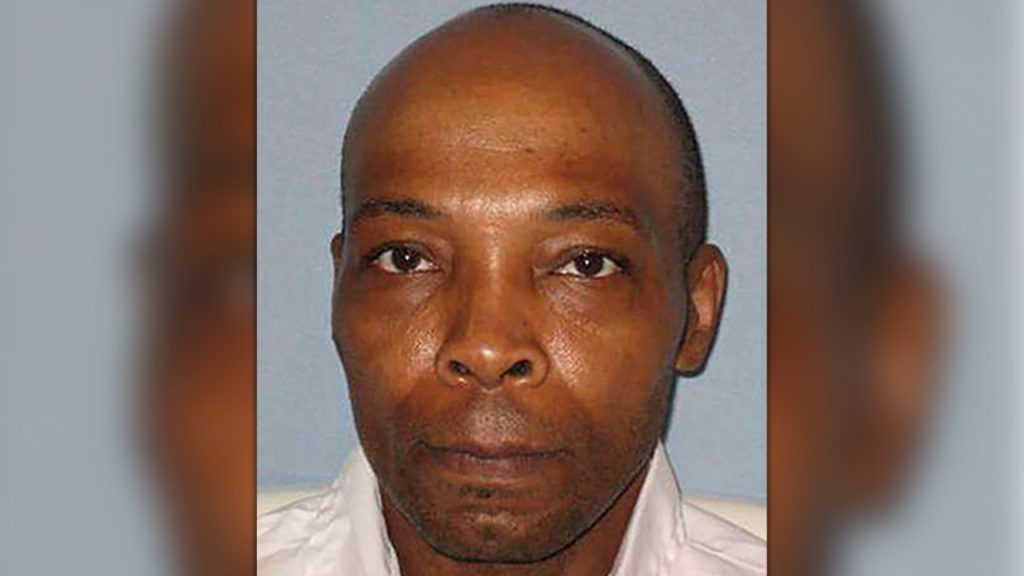Alabama Governor Kay Ivey has announced that Keith Edmund Gavin, 64, will be executed by lethal injection for the 1998 killing of a delivery driver at an ATM in northeast Alabama. The execution is set to take place within a 30-hour time frame beginning at 12 a.m. on July 18 and ending at 6 a.m. on July 19. Gavin was convicted of capital murder in the shooting death of William Clayton Jr., a delivery driver who was shot during an attempted robbery at an ATM in the town of Centre.
On March 6, 1998, William Clayton Jr. was getting money at an ATM to take to his wife for dinner when Gavin shot him, pushed him into his van, and drove off in the stolen vehicle. An investigator with the district attorney’s office was nearby when the shooting occurred and began pursuing Gavin. Gavin stopped the van at one point to shoot at the investigator before continuing to flee. Gavin was apprehended shortly after and Clayton was pronounced dead at a hospital. Gavin was identified as the suspect by two eyewitnesses, the investigator he shot at, and his cousin who was with him before he shot Clayton.
Gavin’s conviction for Clayton’s murder was the second time he was sentenced to prison for murder, as he served 17 years of a 34-year sentence in Illinois before being released on parole shortly before Clayton’s death. A jury voted 10-2 to sentence Gavin to death in 1999. The state Supreme Court recently authorized the execution, leading to Governor Ivey’s announcement of the execution date. In a separate case, Alabama also scheduled an execution date for Jamie Mills, who was convicted in the 2004 killing of a couple during a robbery. Mills is set to be executed by lethal injection on May 30.
The scheduled execution of Keith Edmund Gavin for the 1998 killing of a delivery driver at an ATM in northeast Alabama has raised questions about the death penalty and rehabilitation of offenders. Gavin’s history of serving prison time for murder in Illinois before committing the crime in Alabama has prompted discussions about the effectiveness of the prison system in rehabilitating offenders. The decision to set an execution date for Gavin and another inmate, Jamie Mills, has brought attention to the ongoing debate surrounding capital punishment and its role in the criminal justice system.
The 30-hour time frame set for Gavin’s execution by lethal injection on July 18 and 19 has sparked debates on the morality and ethics of the death penalty as a form of punishment for violent crimes. Critics argue that state-sanctioned executions serve as a form of revenge rather than justice and that alternative forms of punishment, such as life imprisonment without parole, should be considered. Supporters of the death penalty believe that it serves as a deterrent for violent crimes and provides closure to the families of victims.
Governor Kay Ivey’s announcement of Gavin’s execution date and the state Supreme Court’s authorization of the execution have reignited discussions on the implementation and use of capital punishment in Alabama. The decision to put Gavin to death for his role in the 1998 killing of William Clayton Jr. has brought attention to the importance of upholding justice for victims of violent crimes. As the scheduled execution date approaches, the case has highlighted the complexities and controversies surrounding the death penalty, prompting residents and lawmakers to reflect on their stances on capital punishment in the state.


